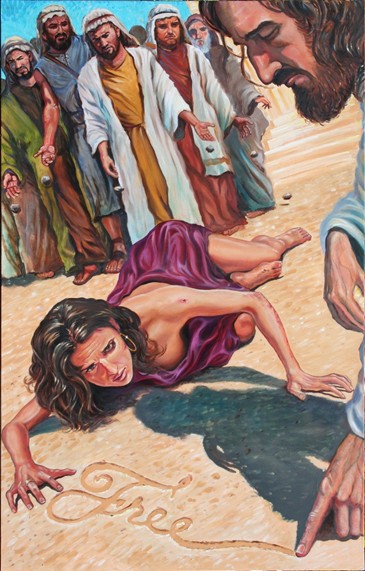Hatred stirs up conflict, but love covers over all wrongs—Proverbs 10:12, NIV.
It is easy to see how hatred stirs up conflict. But love covers all wrongs? What does that mean? This idea that love covers over wrongs is not an isolated thought in this verse but a theme threaded throughout the Scripture’s description of love. For instance:
In Job 14:16-17 (NIV) he says of God’s love for him, Surely then you will count my steps but not keep track of my sin. My offenses will be sealed up in a bag; you will cover over my sin.
Proverbs 17:9 (NIV) Whoever would foster love covers over an offense, but whoever repeats the matter separates close friends.
Proverbs 25:21-22 (NIV) If your enemy is hungry, give him food to eat; if he is thirsty, give him water to drink. In doing this, you will heap burning coals on his head, and the LORD will reward you. Jesus expands on this in Matthew 5:38-42, and Paul picks up this theme in Romans 12:17-21.
1 Corinthians 13:5 (NIV) [Love] keeps no record of wrongs. This mirrors how God loves us, as in Psalms 130:3
1 Peter 4:8 (NIV) Above all, love each other deeply, because love covers over a multitude of sins.
Genesis 9:20-23 (NIV) gives a great (and somewhat literal) illustration of what it looks like for love to cover up sin.
Noah, a man of the soil, proceeded to plant a vineyard. When he drank some of its wine, he became drunk and lay uncovered inside his tent. Ham, the father of Canaan, saw his father naked and told his two brothers outside. But Shem and Japheth took a garment and laid it across their shoulders; then they walked in backward and covered their father’s naked body. Their faces were turned the other way so that they would not see their father naked.
The response of Ham was to call attention to Noah’s sin—to make fun of his father’s situation and to invite his brothers to join in and enjoy seeing the man described as a righteous man, blameless among the people of his time (Genesis 6:9, NIV) naked and drunk on the floor. Noah’s other two sons, Shem and Japheth, responded by literally covered their father’s sin by covering him with his robe, never looking at his naked body and not joining in Ham’s disrespect.
Love should motivate us to do whatever we can, be it through either forbearance or forgiveness, to keep the offenses, failings, and folly of others from becoming sources of conflict—especially public conflict. We need to be more concerned about the call to be gracious and merciful than to publically rebuke one another. The Gospel is about the former, not the latter.

